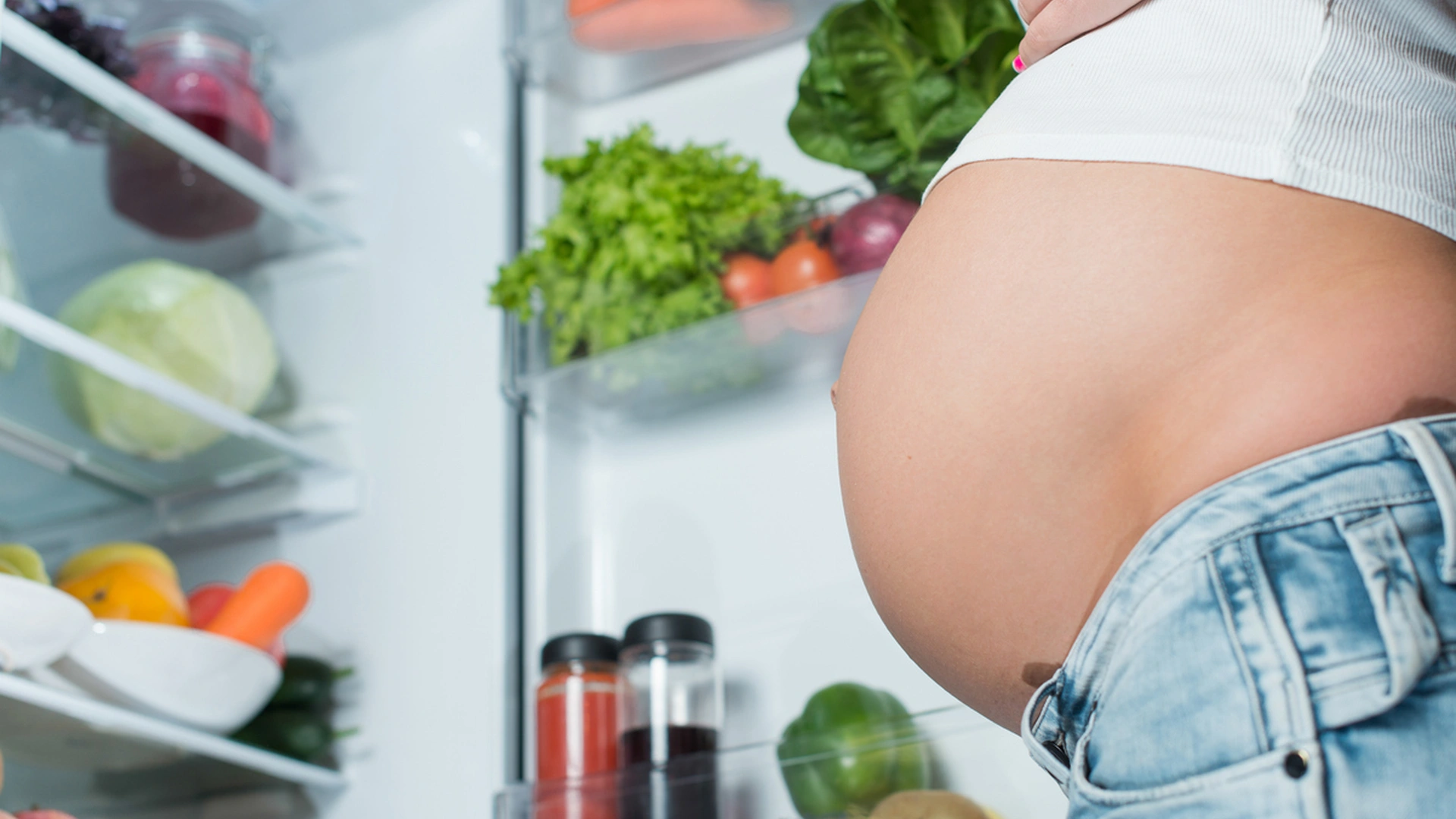

Nutrition is one of the cornerstones of health, and when you’re thinking about becoming pregnant — or once you already are — it’s one of the first things you should pay close attention to in order to provide everything your baby needs, and of course, for yourself as well. There are indeed certain foods that are forbidden during pregnancy, as they can harm the baby.
Knowing what you can eat during pregnancy — and especially what you shouldn’t — can be very rewarding if you approach it carefully, because it shows you’re already being responsible and acting on your first instinct to protect your baby.
On a personal level, having control over your diet during the months of pregnancy will also help you maintain a healthy weight. If you are at a normal weight before pregnancy, a gain of about 9–10 kg is recommended; if you’re above your ideal weight, around 6–7 kg; and if you’re below your ideal weight, you should gain about 12 kg. This weight should be managed responsibly so that it is appropriate and necessary for both of you — your baby and you.
Strategies for Healthy Eating During Pregnancy
Aside from avoiding the forbidden foods during pregnancy, it’s essential to adopt a balanced diet to ensure the well-being of both mother and baby. Here are some key strategies for maintaining healthy nutrition during this stage:
- Eat a variety of foods: Make sure to include a wide range of foods in your diet to obtain all necessary nutrients. (We recommend reading our article on essential nutrients during fertility treatment.)
- Maintain adequate calcium intake: Dairy products such as milk, yogurt and cheese are excellent sources of calcium for the baby’s bone development.
- Increase folic acid intake: Folic acid is crucial in the first trimester to prevent neural tube defects. Include foods rich in folic acid.
- Portion control: Keeping portions in check can help prevent excessive weight gain during pregnancy.
- Drink plenty of water: Staying well-hydrated is essential for the well-being of both mother and baby.
- Avoid fast food and processed foods: Choose fresh, home-cooked meals whenever possible.
- Listen to your body: Pay attention to your body’s hunger and satiety cues and eat when you’re hungry.
Which Foods Are Forbidden During Pregnancy?
Forbidden foods during pregnancy are those that can harm both the fetus and the mother. Let’s look at these foods in detail and the reasons behind the restrictions, as well as some safe alternatives.
Raw Shellfish and High-Mercury Fish
One of the first groups of foods to avoid during pregnancy is raw shellfish and fish high in mercury. Raw shellfish such as oysters and clams may be contaminated with harmful bacteria like Salmonella or Listeria. These infections can cause serious problems in pregnancy, such as miscarriage or fetal harm.
High-mercury fish — such as shark, swordfish, bluefin tuna and grouper — should also be avoided. Mercury is a heavy metal that can damage the developing fetal nervous system. Instead, it’s recommended to eat low-mercury fish like salmon, trout or pollock, which are rich in omega-3 fatty acids beneficial for your baby’s brain development.
Raw or Undercooked Meat
Another group of foods to avoid during pregnancy is raw or undercooked meat, such as steak tartare or carpaccio. These foods can be contaminated with bacteria such as Toxoplasma, which can be harmful to the fetus.
To avoid exposure to toxoplasmosis, meat should be properly cooked and never eaten raw or undercooked. It’s also essential to wash hands and kitchen utensils after handling raw meat to prevent the spread of harmful bacteria.
Unpasteurized Cheeses
Unpasteurized cheeses, such as fresh goat cheese or blue cheese, should be avoided during pregnancy. These cheeses can contain Listeria, a bacterium that is particularly dangerous for pregnant women, as it can cause miscarriage or fetal harm.
To ensure safety, it’s advisable to consume only pasteurized cheeses. Hard cheeses such as cheddar or Swiss are safer options, as is pasteurized cream cheese. Always check product labels to confirm that dairy products are made from pasteurized milk.
Raw or Undercooked Eggs
Raw or undercooked eggs are another food to avoid during pregnancy due to the risk of salmonella. Salmonella is a bacterium that can cause serious infections and endanger both the mother and the fetus.
To prevent salmonella, make sure eggs are fully cooked before eating them. Avoid eggs with runny or partially cooked yolks, such as poached eggs or fried eggs with a liquid center. Choose thoroughly cooked eggs to reduce the risk of infection.
Pâtés and Raw Cured Meats
Pâtés and raw cured meats, such as foie gras or salami, should also be avoided during pregnancy. These products may contain Listeria, which we’ve already mentioned. In addition, pâtés often contain high amounts of vitamin A, which in excess can be harmful to the fetus.
If you want to enjoy pâté, opt for canned or cooked varieties, which are safer during pregnancy. As for cured meats, it is important to heat them before eating to reduce the risk of listeria infection.
Excess Caffeine
Caffeine is another element to monitor during pregnancy. Excessive caffeine consumption has been linked to a higher risk of miscarriage and premature birth. While caffeine is not a food itself, it’s important to take into account all its sources, such as coffee, tea, soft drinks and chocolate.
The general recommendation is to limit caffeine intake to less than 200 milligrams per day, which is about one 12-ounce cup of coffee. Also remember that some pain relievers and supplements may contain caffeine, so you should pay attention to your total caffeine consumption.
Alcohol
There is no safe level of alcohol consumption during pregnancy. Alcohol can cross the placenta and affect fetal development, which may result in physical, cognitive and behavioral problems known as fetal alcohol spectrum disorder (FASD). Therefore, alcohol is strictly prohibited during pregnancy.
Artificial Sweeteners
Artificial sweeteners such as aspartame or saccharin have raised concerns in pregnancy. Although their safety has been studied, excessive consumption is not recommended during this stage, as they may negatively affect fetal development.
Check product labels to identify the presence of artificial sweeteners. Choose safer alternatives, such as stevia, which is considered safe in moderation during pregnancy.
Foods High in Sugar and Trans Fats
In addition to the specific foods mentioned above, it’s important to avoid those with a high content of sugar and trans fats. These include processed foods such as cakes, cookies, doughnuts and fast food. Excessive consumption of these foods can lead to undesired weight gain and increase the risk of pregnancy complications such as gestational diabetes.
Instead, choose a balanced diet rich in fruits, vegetables, whole grains and lean proteins. These foods provide the nutrients necessary for the baby’s growth without the excess sugar and unhealthy fats.
Finally, don’t forget to:
- Visit your doctor for personalized guidance based on your individual case after the relevant tests have been performed.
- If you exercised before pregnancy, you can usually continue some form of exercise (in normal pregnancies), as your body is accustomed to it — just moderate the intensity and consult a specialist. Activities such as Pilates can help before, during and after pregnancy.
- Be very happy while taking care of yourself — that will be the best thing you can pass on to your baby.
Book a free consultationDo you have any questions or need more information?
At Fertility Madrid, we specialise in treatments such as egg donation, in vitro fertilisation and artificial insemination, among others.
Please do not hesitate to contact our professionals at our fertility clinic and they will answer all your questions without obligation.

Carmen Anarte
Clinic Manager




